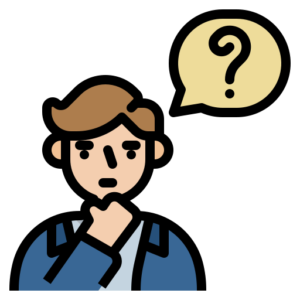In the world wide web, search engines are our savior. Without them, we would never be aware of a wide range of useful websites. but the search engines are nothing without the help of Search Engine Optimization, Now you must be wondering “What Is SEO”.

Before, getting in to Search Engine Optimization, its important to understand facts about Search engines first. Whatever we want to search online, we immediately head over to search engines like Google or Bing.
We just need to type certain keywords related to our query and get the most relevant results that contain the right information.
Even in today’s world of social media platforms like Facebook, Twitter, and Instagram, Google is still important to consumers. Research by Forrester shows that 54 percent of internet users found websites through natural or organic search engine results. This is followed by social networks at 32 percent.
Ranking high in search engine results is especially important for local businesses. Data from Google and Ipsos Connect shows that 88 percent of local searchers on smartphones visited a store within a week after they searched for it.
If people use search engines to find information on the internet, Search Engine Optimization will be essential to every company that operates online. That includes small businesses, startups, and multinational companies. But first, what is SEO and how does it work?
What Is SEO?

Search engine optimization is the process of leveraging “free” or “organic” search results on search engines like Google, Bing, and Yahoo. The goal is to increase the number of internet users coming to your site.
All search engines have primary search engine results pages (SERPs). On the SERPs, web pages, images, videos, news, and local listings are shown and ranked based on what the search engine deems most relevant to a user’s search query.
A search engine like Google does this by using “spiders” to constantly “crawl” the internet and look for new web pages to add to its index of known pages. Google’s search algorithm then ranks these pages when displaying them in the search results.
The higher up your website appears on the SERPs for a search query (or set of queries), the more web traffic it gets.
This strategy differs from tools like AdWords that allow businesses to pay for a featured top result. Those tools are part of a search engine marketing strategy, which differs from an SEO strategy.
Searchers can recognize paid advertisements by the “Ad” symbol next to the website’s URL. Businesses typically pay for this top spot every time a user clicks on their link.
While it is effective in ranking your site for that one keyword, a good SEO strategy will also help you rank high in several related keywords and won’t cost you extra.
This makes SEO the preferable strategy for many businesses.
Now that you have a fair understanding of what is SEO, let us take a deep dive into it.
What an SEO Professional Does ?

An SEO professional’s job is to apply different techniques and follow best practices to ensure your website maximizes its rankings for relevant keywords.
With Search Engine Optimization, keywords are the primary tools used to optimize any web page for a search engine’s ranking algorithm—the set of rules used to rank search results.
This, however, is much easier said than done, which is why Search Engine Optimization professionals are in high demand.
In fact, skills and knowledge in SEO and search engine marketing strategies were identified as among the top 25 in-demand skills on LinkedIn in 2018. Roles requiring these skills include Marketing Specialists ($49,000), online marketing managers ($80,000), and advertising managers ($61,200).
In any case, these positions may require you to create an SEO strategy as part of an organization’s digital marketing campaign.
What is an SEO Strategy?

One of the things that makes the Search Engine Optimization industry exciting is that there’s an active exchange of SEO tactics, ideas, and best practices that everyone can benefit from.
These factors, in turn, will help you create an Search Engine Optimization strategy or SEO plan—the overall blueprint outlining the steps you should take to optimize your website for search engines.
Because you’ll be working with a substantial volume of data, your SEO plan also needs to be data-driven to be successful and scalable. It should consider things like:
- Your business goals
- Your industry and verticals
- The keywords relevant to your industry and verticals
- Your target audience
- Your existing website infrastructure
Once you’ve determined these factors, your SEO strategy will help you organize your website’s content by topic. This helps a search engine like Google understand what each page on your site is about, matching it with a user’s intent when searching.
This process of optimizing individual web pages around topics, and specific keywords relevant to those topics, improve your relevance in the eyes of a search engine.
This allows each page to rank well for the set of keywords it is targeting.
What Is SEO in layman terms / Search Engine Optimization?
SEO stands for “search engine optimization.” In simple terms, it means the process of improving your organic traffic by increasing the site’s visibility when people search for products or services related to your business in Google, Bing, and other search engines.
The better visibility your pages have in search results, the more likely you are to get attention and attract prospective and existing customers to your business. Now that we have understood what is SEO let us understand how it works.
How does SEO work?

Google or Bing use their spiders to crawl the respective pages on the web, they go from one page to the other by gathering data about those pages and adding them in a database for Indexing. This was the process of crawling so far, now you must be wondering what indexing means.
What Is Indexing In Search Engine Optimization?
Think of the index like a big grocery store where the store manager can help you find an item (or a web page) that you were looking for.
Next, based on the rule of google algorithms, the bots scan the pages in the indexing stage taking into account 100’s of ranking signals in order to finalize whether the web pages should get displayed in the SERPs for a given query.
In our grocery analogy, the store manager has knowledge of every item and can tell you exactly which one is useful or relevant to you.
Types of SEO

Search Engine Optimization is basically divided into 2 types, they are:
- On-page SEO
- Off-page SEO
On-page SEO – On-page SEO is the practice of optimizing the on-page factors of a webpage. Such as title, meta description, H1 tag, Page speed, and interlinking structure.
Off-page SEO- On the other hand, off-page is bringing relevant traffic to the website through link-building practice.
With that we have come to the end of the article “what is seo”.
Wrapping Up
In this article, we discussed everything about search engine optimization in detail. We learned what is seo, what an Search Engine Optimization professional does, what are the Search Engine Optimization strategy, how does a Search Engine Optimization work and its various types. Hope you liked the articles so far, in case of any doubt please leave a comment below






